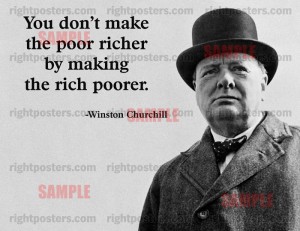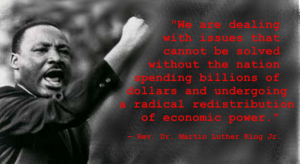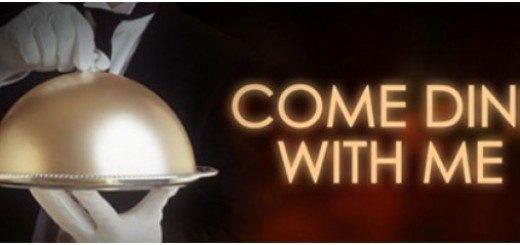The Year of Jubilee
Leviticus 25 is one of the most revolutionary passages in the Bible. What God was planning for the Hebrew people was a chance in every lifetime to start again. A chance to wipe the slate clean and start your life over. But let’s not get ahead of ourselves, there is some farming to get right first.
For six years sow your fields, and for six years prune your vineyards and gather their crops. But in the seventh year the land is to have a year of sabbath rest, a sabbath to the Lord. Do not sow your fields or prune your vineyards. Do not reap what grows of itself or harvest the grapes of your untended vines. The land is to have a year of rest. Whatever the land yields during the sabbath year will be food for you—for yourself, your male and female servants, and the hired worker and temporary resident who live among you, as well as for your livestock and the wild animals in your land. Whatever the land produces may be eaten. Leviticus 25:3-7
 Every seven years, cultivate nothing. Let the land have a breather. Just as you need a weekly day off, so the land needs a year off every seven years. Basically God was telling the people how to get the most out of the land using crop rotation and allowing the land to be fallow for a year. In fact, this is one of the earliest references in writing to crop rotation that historians know of – the Sabbath year for the land. God knew what was best to keep the land flowing in milk and honey. 4000 years later, sensible farmers still use this method to keep their fields fresh and their crops growing.
Every seven years, cultivate nothing. Let the land have a breather. Just as you need a weekly day off, so the land needs a year off every seven years. Basically God was telling the people how to get the most out of the land using crop rotation and allowing the land to be fallow for a year. In fact, this is one of the earliest references in writing to crop rotation that historians know of – the Sabbath year for the land. God knew what was best to keep the land flowing in milk and honey. 4000 years later, sensible farmers still use this method to keep their fields fresh and their crops growing.
Being every seven years was both right for the land and significant for the people. Seven is a sacred number in Judaism and is used to represent God, perfection and the divine. For example, in the story of the Exodus, the people met with God at Mount Sinai during the seventh week of their journey. So the seventh year being special was no surprise. But what happens every seven times seven years? Seven squared is even more significant, so what does God have in store for the people then?
Consecrate the fiftieth year and proclaim liberty throughout the land to all its inhabitants. It shall be a jubilee for you; each of you is to return to your family property and to your own clan. The fiftieth year shall be a jubilee for you; do not sow and do not reap what grows of itself or harvest the untended vines. For it is a jubilee and is to be holy for you; eat only what is taken directly from the fields. Levitcus 25:8-10
So the 49th year was a Sabbath year and at the end of that year, the start of the 50th year, declare a jubilee and do not sow and reap the land again for another year. So every 50 years the land gets an extra year’s rest. An additional break to make sure that it is good for another 50 years.
But the farming was just the start. God makes even more amazing rules about how the year should be run. The rules revolve around property, poverty and labour.
First people need to return home:
Proclaim liberty throughout the land to all its inhabitants. v10
Each of you is to return to your family property and to your own clan. v 10
Everyone is to return to their own property v13
Every 50th the diaspora is reset. Wherever you have gone, come back. Back to your family. Back to your birthplace.
Then people need to return ownership of property and land to whoever had owned it 50 years previously.
And they are to (buy and) sell land to you on the basis of the number of years left for harvesting crops v15
The land must not be sold permanently, because the land is mine and you reside in my land as foreigners and strangers v23
For everyone who sells land it will be returned in the Jubilee, and they can then go back to their property. v27
Although this final command didn’t apply to houses in cities – they, once sold and after a one year cooling off period, would transfer for ever. Although it did apply if you were a priest. And we think selling a house is complicated today!
Effectively, God was setting up a lease system. The underlying right to the land was still with the seller of the land and you bought a lease to use it until the 50th year. Buy it on day one with 50 years to run, you pay a high price; buy it with just a year left, you pay a low price as you will only get a year’s use out of it. The majority of flats sold in the UK today are leasehold with property reverting to the original owner after a hundred or a thousand years. God was laying a system that allowed the economy to be reset. Amazing approach to dealing with financial matters.
But it was also about the poor and those in indentured labour.
If any of your fellow Israelites become poor and are unable to support themselves among you, help them as you would a foreigner and stranger, so they can continue to live among you. Do not take interest or any profit from them, but fear your God, so that they may continue to live among you. You must not lend them money at interest or sell them food at a profit. Leviticus 25: 35-38
If any of your fellow Israelites become poor and sell themselves to you, do not make them work as slaves. They are to be treated as hired workers or temporary residents among you; they are to work for you until the Year of Jubilee. Then they and their children are to be released, and they will go back to their own clans and to the property of their ancestors. Leviticus 25: 39-41
So even if you are forced to sell yourself and children into indentured labour, in the 50th year you will go free. The slate will be wiped clean. The rules set out how you shall be redeemed and then God says in verse 54 that if all of that means you are still not redeemed, then you are redeemed anyway. Just in case the clever lawyers and rulemakers get too smart, you will be redeemed even if the fine print says you are not. God makes it clear what his intention is.
 So does this have any relevance or meaning for us today? In some ways it doesn’t. The new Jewish system of dividing the nation into tribes, and tribes into households, meant that everyone had a place they called home. But not all societies are structured like that, so it may not be universally relevant. But the underlying intention of God was clear. Everyone and every society gets a fresh start at least once a lifetime. To me, this speaks volumes into our economic system of today.
So does this have any relevance or meaning for us today? In some ways it doesn’t. The new Jewish system of dividing the nation into tribes, and tribes into households, meant that everyone had a place they called home. But not all societies are structured like that, so it may not be universally relevant. But the underlying intention of God was clear. Everyone and every society gets a fresh start at least once a lifetime. To me, this speaks volumes into our economic system of today.
Both the capitalist permanent accumulation of wealth in the hands of the few and the communist removal of property ownership completely do not sit well alongside this passage. The capitalist system allows the winners from each generation to make their children and their children’s children the winners in the next generation. There is no reset. No chance for fairer distribution to all. In fact quite the opposite.
The current system has made a virtue of money and its opportunity. We must put no constraints on the rich so that they may bless us with spending their money in our country. If we tax them or try to redistribute their wealth, they will leave and we will all be the poorer. The theory goes that the rich will get richer and the poor will become less poor riding on the coat tails of their success. And yet there is little evidence that that actually happens. More common, it seems, is that the rich get richer and the poor stay exactly where they are.
 In 2000, the British Government was looking at its aid work in India and concluded it just needed a 5% per annum growth for a decade for the whole of society to be lifted out of absolute poverty. Which was fine until the economists checked what happened in the previous decade. The economy had grown at higher than 5% every year but more than 350 million more people (ie the population of the whole of Europe) were now living in abject poverty. The rich had got richer and the poor had got poorer. Trickle down only worked for the 100million middle class people in India – the other 900million had seen little benefit.
In 2000, the British Government was looking at its aid work in India and concluded it just needed a 5% per annum growth for a decade for the whole of society to be lifted out of absolute poverty. Which was fine until the economists checked what happened in the previous decade. The economy had grown at higher than 5% every year but more than 350 million more people (ie the population of the whole of Europe) were now living in abject poverty. The rich had got richer and the poor had got poorer. Trickle down only worked for the 100million middle class people in India – the other 900million had seen little benefit.
And that is our challenge today. How do we make our country and our world a fairer place. We can land a probe on a comet millions of miles away but still thousands will need a Foodbank this week. Is it time we took some radical steps to make things fairer? Isn’t it time for a year of Jubilee right here, right now? Capitalist and communist economics have left the majority of people worse off. For most people a radical change would only make things better.












